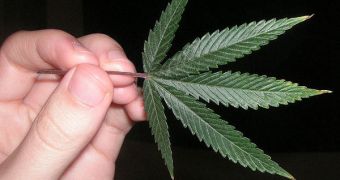Researchers have recently determined that young adults who use cannabis often and for prolonged periods of time are very likely to experience symptoms that can be qualified as psychosis later on. These effects include hallucinations and delusions, but a host of other manifestations can make themselves felt as well. Details of the new work were recently presented online, and a full paper describing the findings is scheduled for publication in the May issue of the JAMA/Archives journal Archives of General Psychiatry.
In the background section of the article, researchers mention the fact that previous studies have already identified a correlation between smoking cannabis and the development of psychosis symptoms. They add that these works did not properly account for other variables that may have influenced the overall result, thus rendering them vulnerable to criticism. The new investigation therefore sought to eliminate these confusions. It was conducted on a number of 3,801 young adults, all of them born between 1981 and 1984. The study was conducted by researchers at the University of Queensland Brain Institute, who were led by expert John McGrath, MD., PhD.
During the survey, taken when the participants were at an average age of 20 years, researchers gave test subject questionnaires gaging a number of factors. They asked the young people about their cannabis use in recent years, and attempted to analyze the symptoms of psychosis in these individuals. In order to do this, the team used several investigations techniques, including interviews, creating inventories of delusions, and assessing factors that could indicate the presence of hallucinations. The results showed that 65 participants suffered from non-affective psychosis, including schizophrenia whereas some 233 experienced at least one symptom of hallucination, as established during the interviews.
“Compared with those who had never used cannabis, young adults who had six or more years since first use of cannabis (i.e., who commenced use when around 15 years or younger) were twice as likely to develop a non-affective psychosis and were four times as likely to have high scores on the Peters et al Delusions Inventory [a measure of delusion],. There was a 'dose-response' relationship between the variables of interest: the longer the duration since first cannabis use, the higher the risk of psychosis-related outcomes,” the experts write in their paper.
“The nature of the relationship between psychosis and cannabis use is by no means simple. This demonstrates the complexity of the relationship: those individuals who were vulnerable to psychosis (i.e., those who had isolated psychotic symptoms) were more likely to commence cannabis use, which could then subsequently contribute to an increased risk of conversion to a non-affective psychotic disorder,” they conclude.

 14 DAY TRIAL //
14 DAY TRIAL //